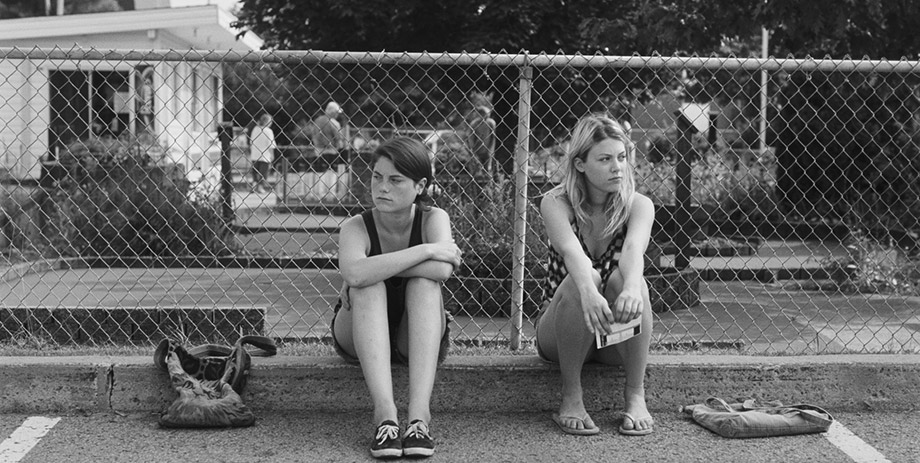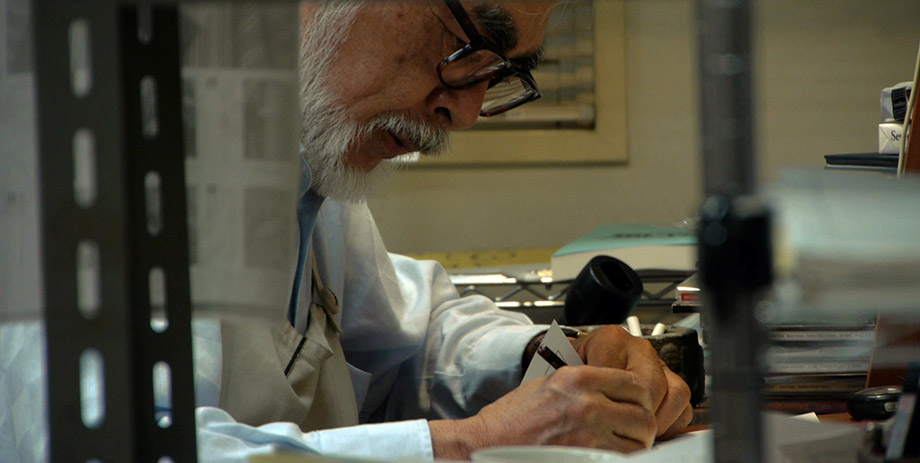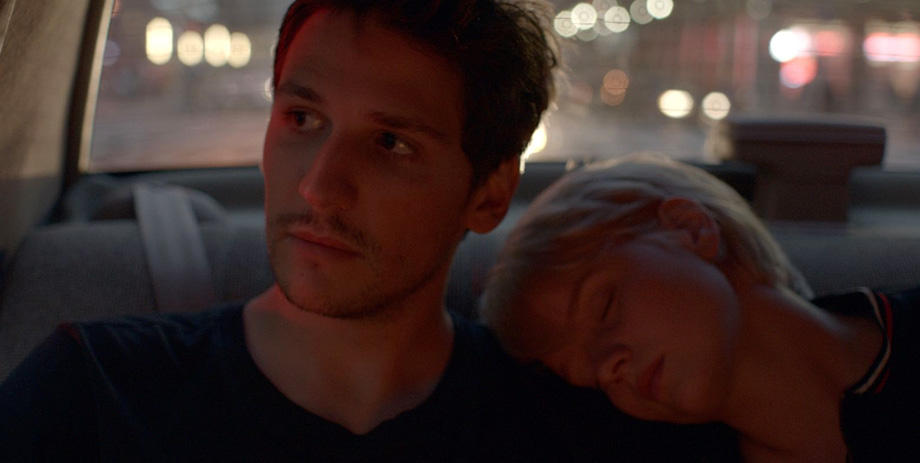There was a different feeling this year at the Toronto International Film Festival (TIFF). A sense of urgency was in the air, partially due to TIFF’s new rules that directly challenged Telluride for control of world and North American premieres. The streets also felt more energetic — thanks in part to the festival closing down roads around the TIFF Bell Lightbox, Princess of Wales Theatre, and Roy Thomson Hall (the festival headquarters and red carpet venues, respectively). Moviegoers could walk between venues freely, soaking up the remaining sunlight of the Toronto summer before plunging back into film-fueled darkness.
But what didn’t change is the fact that the festival is a behemoth (but a well organized one) with more than 300 films spanning every imaginable topic, language, country, and genre. Beautiful cinematic chaos, filled with trips to the unknown where hidden gems screen alongside prestige films with noisy marketing campaigns attempting to attract early Oscar buzz. It is impossible to see even more than a drop in the bucket of the overall selection at TIFF. I was there for almost an entire week and was able to catch just over 30 films. Countless critics have come out with “best of” TIFF lists. But when you see this many films, the really good ones leave a mark. They burn themselves into your mind. Instead of a traditional best-of list then, here are the 10 films that left that singular mark and have stuck with me since they flickered to life in the darkness of TIFF.
Tu dors Nicole
Dir. Stéphane Lafleur

Summertime. That enigmatic time of year cinema has attempted to capture and define for every generation and decade. Beach parties, lost virginity, summer camp drama, and, of course, one Mrs. Robinson. It has become the backdrop of choice for coming-of-age tales, representing a pivotal juncture in life we can identify with. Despite launching itself head-on against such an established history of films that brilliantly capture these themes, Stephane Lafleur’s Tu dors Nicole is able to depict these singular moments with unabashed curiosity and slow-burn ease. Shot in beautiful black and white, it follows the titular Nicole (Julianne Cote) as she floats from experience to experience, job to job, in her small Quebec hometown. Battling her brother’s band for control of the house (of course the parents are gone for the summer), combating the advances of a young Romeo half her age during her babysitting side gig, and trying to figure out some way to take the next step in her life — even if it means charging it to credit. The quiet genius of the film is the way it pulls the audience along. There is a force simmering just below the surface most films can’t quite capture, but Tu dors Nicole unabashedly nails. The pull of youth, of infinite dreams and possibilities, and a nostalgia for the way things used to be colliding with the inevitable gravity of the future and the cold reality of being an adult. The film may inevitably be compared to Frances Ha, but that would be a generalization taken to far. This French-Canadian coming of age tale stands alone.
It Follows
Dir. David Robert Mitchell

If Sam Raimi (Evil Dead) had access to modern-day digital film equipment when initiating his odyssey into the horror genre, he might have made something like It Follows. But let’s give credit where credit is due: David Robert Mitchell’s film is one of the creepiest horror tales of the year (or will be when it is released in 2015), and it does so largely without the blood and gore that so often permeates the genre. It pulls a few old-fashioned horror scares with things that unexpectedly go bump in the night, but the terror is more psychological and, like all good horror films, derives its fear from issues society rarely wants to meet head-on. After a night out with her boyfriend goes from romantic to downright horrific, Jay (Maika Monroe, one of the new talents to emerge from TIFF this year, also starring in festival favorite The Guest) emerges from the experience with a sexually transmitted haunting. Yes, you read that right; despite its seemingly absurd premise on paper, Mitchell pulls it off. The hauntings Jay experiences are like a slow, inescapable nightmare: easy to avoid at first, but always with her, a dream from which she can’t seem to emerge. It Follows is one of the few films that uses the iconic tableau of Detroit — both city and suburbs — to its advantage. Although a few scenes fall short when the opportunity arises to spin a little social commentary, the Detroit backdrop adds a gothic grandeur and Lynchian creepiness to the film. Add an original synth soundtrack from Disasterpeace that compliments the eerie visuals and sets a new bar for a modern horror score and you are left with a genre flick that is as great to listen to as it is to look at.
Goodnight Mommy
Dir. Severin Fiala and Veronika Franz

Freud liked to talk of the uncanny. In fact he wrote a book on the subject. But if he were alive today, Goodnight Mommy would send him heading for the hills. After watching the film it will probably come as no surprise to those familiar with Austrian cinema that Ulrich Seidl (Paradise Love, Paradise: Faith, Paradise: Love) had a hand in its production. Like Seidl, directors Severin Fiala and Veronika Franz are able to create a disturbing (but strikingly shot) horror scenario out of everyday life. Two twins, Lukas and Elias, roam around a sunny countryside estate early in the film. Cornfields and forests flow by, natural beauty surrounding them at every turn, but something ominous looms on the horizon, even in early scenes. Their mother arrives home, face completely bandaged after an operation. The twins, initially excited for their mother’s return from the hospital, begin to suspect something isn’t right. Is it the operation that has changed her temperament or is there an impostor hiding underneath the bandages? As she becomes more severe with her punishments, the twins begin to lash out and fear the worst has happened to their mother. The film brilliantly toes the line between the two sides: a mother trying to stay relevant in a world obsessed with beauty, and children fearing change, unsure of what to make of a world so unnatural it would demand a person to physically alter themselves. Goodnight Mommy was one of the most unexpected films of the festival — plenty of hard-to-watch scenes involving intense bodily harm sent a few audiences members packing early — but those that did stay until the end joined in the clapping to celebrate one of the best films of TIFF.
The Duke of Burgundy
Dir. Peter Strickland

One of the most visually sumptuous films of the festival (the opening credit sequence alone is more striking than even the big-budget Hollywood pictures of the last decade), Peter Strickland’s The Duke of Burgundy is a simple love story about two people trying to make a relationship work. Cynthia (Sidse Babett Knudsen) lives in an elaborate country estate and dabbles in the study of Lepidoptera — which provides plenty of opportunity to cut to images of butterflies for both metaphorical and aesthetic reasons. Her lover, Evelyn (Chiara D’Anna), doubles as her housekeeper. Although we initially perceive the relationship as a domineering, one-sided endeavor, it is soon revealed (through repetition, another Strickland trademark) the relationship may not be so clear cut. Evelyn relishes the punishment doled out by her lover and pushes the boundaries of what their relationship can handle. It would be easy to navigate into the territory of schlock or exploitation with this material, but Strickland’s obsessive control of each movement, each image repetition, and the tenderness with which he treats the relationship between Cynthia and Evelyn renders it one of the most honest love stories of recent years. If you are looking for a great film about an unconventional relationship, forget Hollywood’s desperate attempt to go mainstream with the subject and watch Peter Strickland’s more interesting film. If Berberian Sound Studio (2012) announced Strickland as a talent to watch, The Duke of Burgundy proves he is one of the most singular and unconstrained filmmakers working today, a master of manipulating visuals and sound (and he never forgets his characters along the way).
The Kingdom of Dreams and Madness
Dir. Mami Sunda

If The Kingdom of Dreams and Madness was simply a film about master animator Hayao Miyazaki, it would have been good. If it were only a documentary tracing the final months of the world-renown Japanese animation studio, Studio Ghibli, it would have been required viewing. But this documentary, one of the best at TIFF, is so much more. It lifts the veil on the daily routines of a true cinematic master at work. It raises questions about the value of cinema in a world saturated by the moving image in its evolving, always accessible form. It’s a tale of a man who has devoted his life to an art form, but isn’t sure if his life work matters any more. Director Mami Sunda was given unlimited access to the studio and its employees as they raced to finish The Wind Rises and The Tale of The Princess Kaguya, rumored to be the last two films from Studio Ghibli. And while The Kingdom of Dreams and Madness primarily focuses on Miyazaki, we also get glimpses of others who have given the films produced in the small studio outside Tokyo worldwide acclaim. Producer Toshio Suzuki is one such person — feverishly working on deals with toy companies and keeping the press at bay when the hard questions about the studio’s future arise. But others not named also are shown on screen, drawing and coloring, tirelessly working to create animated masterpieces for the world. With the recent release of The Wind Rises and The Tale of The Princess Kaguya soon to be released (its elusive director Isao Takahata even makes an appearance), this documentary is a must-watch. Even if it does come off as a bit of a PR piece at times, few documentaries capture filmmaking genius in action so flawlessly.
Force Majeure
Dir. Ruben Ostlund

One of the fascinating things about movies involving the apocalypse is the thought experiment it presents audiences with: What would fragile humans do in the instant when the proverbial (or actual) shit hits the fan? Would we protect our families and our loved ones? Would those Christian souls among us still offer food and shelter, even in the worst circumstances? Or would the neighborly façade of our society melt away, casting us into an every-man-for-himself scenario wherein bands of roaming gangs pillage and forcefully take what’s left of the post-apocalyptic shell that is our world? The brilliance of Force Majeure is it presents this thought-provoking experiment not through the lens of the apocalypse as so many movies have already attempted — there are no zombies, patient zeros, or catastrophic world-altering events to be found — but through a single traumatic event on what begins as an unassuming family vacation. Tomas (Bah Kuhnke) and Ebba (Lisa Loven Kongsli) are on holiday in the French Alps with their two children. They ski during the day, eat good meals, drink wine, make friends with fellow vacationing couples, and return to their expensive resort room as a family each night. The only criticism that could be leveled at this family is Tomas’ inability to leave his work phone for an extended period of time. It’s all very picturesque and director Ruben Ostlund, along with cinematographer Fredrik Wenzel, employs this stunning natural backdrop to full effect. Snow-grooming tractors crawl up and down the slopes, canon-like booms from controlled avalanches echo off the peaks, and Vivaldi is cranked into high gear, initially giving the film a bit of playfulness to compliment a profound sense of awe. But after an incident at the resort exposes the true nature of each member of the family, the mountains, the booms, and even the Vivaldi seem more sinister. Ostlund expertly walks the line between drama, humor, and social commentary. The phone — that complex piece of technology that never seems to leave our grasp — becomes a pivotal element to the story, in the way the decisive events are retold, but is itself a force that affects the way the characters view their relationships to each other. Force Majeure originally screened to great acclaim at Cannes, and it was evident how receptive people were to the film when it opened to a wider audience at TIFF. I was able to catch it the second day of the festival, and a few days later you couldn’t stand in line without hearing someone mention it in excited tones. Although it didn’t win any awards in Toronto (it did, however, win the Un Certain Regard Jury Prize at Cannes), it was evident even without prizes: this will be one of the most talked about films of the year. It is a psychological epic, deftly blending drama and subtle comedy, and could stand as a emblem of our times with its well-placed commentary on everything from family dynamics to the impact our increasingly digital lives have on our ability to function. It is a movie in the fullest sense of the word and demands to be watched on the largest screen possible.
Far From Men
Dir. David Oelhoffen

Part-The Good, The Bad and The Ugly, part-3:10 to Yuma, David Oelhoffen’s Far From Men is a breathtaking, spectacular, multi-lingual Western. Born of Spanish parents but raised both French and Algerian, Daru (Viggo Mortensen, thoroughly enveloped by this character) is a man without allegiances forced into a time, place, and situation not of his choosing. The era happens to be the Algerian struggle for independence in the 1950s, and the place is a remote village caught in the middle. Daru is a schoolteacher, but because of his past as a French soldier in World War II, he is forced to escort Mohamed (Reda Kateb), an Algerian local accused of murder, to a nearby town to face judgment. As he begrudgingly sets off on the rocky terrain, captive and captor begin to respect and understand each other before being thrown headfirst into a conflict wherein they realize they are outsiders. With a superior tableau and cinematography and a wicked soundtrack from Nick Cave and Warren Ellis (who now have quite the track record when it comes to the modern Western after The Proposition and The Assassination of Jesse James by the Coward Robert Ford), the Western doesn’t get much more nuanced (or better) than Far From Men.
The Keeping Room
Dir. Daniel Barber

Three women are holed up in a southern farmhouse during the Civil War. Augusta (Brit Marling), the eldest, is the leader, keeping food on the table with the help of her young sister Louise (Hailee Steinfeld) and their slave Mad (Muna Otaru). What stands out about Daniel Barber’s deftly shot and meticulously crafted tale, especially as a wartime film, is the women are central to the battlefield action. They are not nurses. They are not the caretakers of men. They are defending themselves and their property without the aid of others. The impending arrival of Sherman’s troops — the film takes place in the days leading up to Sherman’s infamous march from Atlanta to Savannah — gives the scenario a post-apocalyptic feel. When two Yankee scouts (Sam Worthington and Kyle Soller) make their way to the farmhouse — their pride wounded during an earlier encounter with Augusta — a game of cat-and-mouse ensues, but not like one would expect. The hunters of The Keeping Room easily become the hunted. While The Hunger Games is celebrated for its single strong female lead, The Keeping Room has no less than three, with enough racial commentary — perfectly complimenting the survive-or-die scenario the characters find themselves forced in to — to make other movies attempting something this complex blush. It is tense film, one that is able to keep viewers on the edge of their seat, while avoiding gender and genre stereotypes that plague films set in this time period.
Tokyo Fiancée
Dir. Stefan Liberski

It’s difficult to pull off cross cultural, multi-lingual love stories. And it’s easy to cringe when you hear a narrator dictate said story as it happens on screen without letting the audience develop conclusions and connect the images in its own way. But Stefan Liberski’s new film — based on the autobiographical adventures of author Amelie Nothomb — manages to pull it all off. This speaks volumes about both the directing and source material, but also of the screenplay Liberski adapted. Amelie (Pauline Etienne) is a young woman obsessed with Japan. Despite being raised in a Belgian household and speaking fluent French, she moves to Tokyo to immerse herself in her idealized version of the country. Along the way she finds a lover — and eventually the titular fiancée — in the form of her favorite student (she works as a French tutor to make ends meet), Rinri (Raichi Inoue). Rinri is her guide to Japanese culture and traditions, while Amelie becomes his gateway into everything French. Their hearts and life paths waiver and weave, as complicated as the cultures they attempt to meld together. It has the artistry of a film like Amelie, but with the cool realism of Lost in Translation. It is simultaneously beautiful and melancholy, a journey of lessons learned and a reminder that language is just a minuscule part of what comprises a culture.
The Lesson
Dir. Kristina Grozeva and Petar Valchanov

When Nadezhda (Margita Gosheva), a schoolteacher in a small Bulgarian town, finds money has been stolen from a student in the opening scenes of The Lesson, she is determined to make an educational opportunity out of the situation. Day after day she offers the thief a way to come forward, to redeem him or herself — at first anonymously — but as the film progresses, through more overt methods. But when a personal financial situation involving her husband’s misuse of money forces Nadezhda into dire circumstances, the lesson she is trying to teach the class collides with her own economic reality. The film weaves the macro and micro together, capturing the forces at work in this world that are so often out of our control while commenting on the difficulty of living an honest life when the world and its rules, systems, and bureaucracy seem determined to triumph. Its commentary on society is rolled into dark comedy — at least the loan shark offers Nadezhda free coffee before he threatens her — and makes for a film that is a ultimately a quiet epic.
Additional Recommendations

Need more movies? Keep an eye out for They Have Escaped (a raw, but beautiful story of two societal misfits attempting to escape the confines of their community into the wilderness), Eden (Mia Hansen-Løve’s romance narrative set to the backdrop of the 1990s electronic music scene), and Waste Land (a dark Belgian cop thriller).
